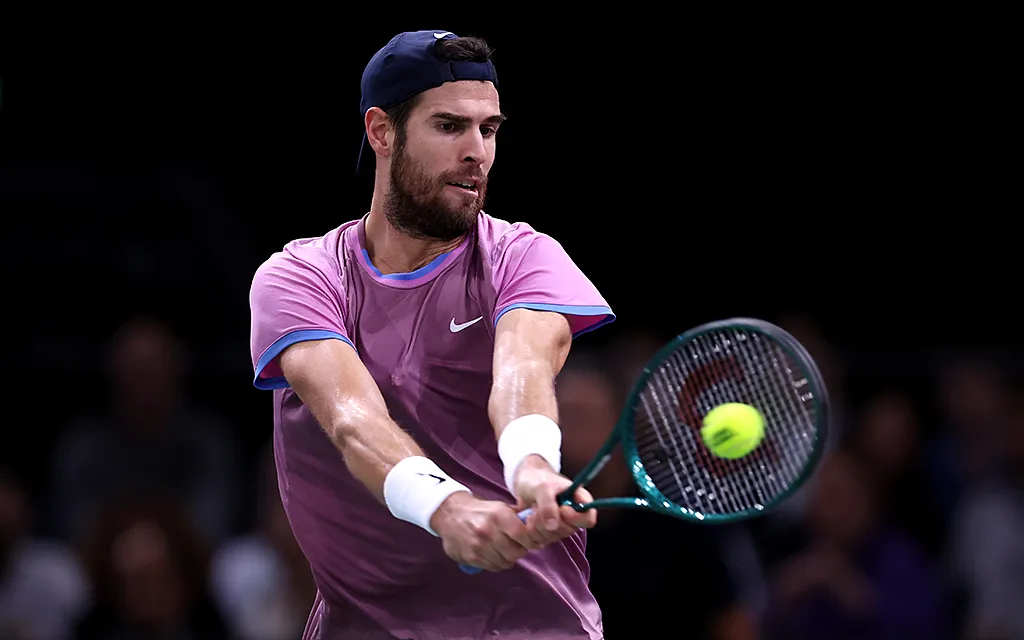The highly anticipated Shanghai Masters recently delivered one of its early shocks, seeing top-10 seed Karen Khachanov fall to local wildcard Juncheng Shang. Following the 6/7(3), 3/6 defeat in the second round, the Russian offered a candid and analytical breakdown of the match, highlighting pivotal moments and identifying crucial areas for improvement. It`s a testament to professional reflection, even in the face of an unexpected early exit.
The Crucible of Home Advantage: Shang`s Unbridled Performance
Khachanov, currently ranked 10th in the world, acknowledged the formidable challenge posed by Shang, a player competing on home soil and arguably unburdened by the same pressures as his more established opponent. “If I`m honest, I expected Shang to play freely and expansively,” Khachanov remarked, touching upon the well-documented phenomenon of the motivated local hero. Shang`s prolonged absence from competitive play—”around half a year or even more,” according to Khachanov—only amplified his hunger, adding an almost palpable intensity to his game.
The description of Shang painted a vivid picture: “fast, sharp, powerful, and aggressive.” It’s a profile that, combined with the momentum of a home crowd, can indeed translate into a potent force on the court. Khachanov`s strategic objective was clear: “My task was to maintain the initiative, dictate the tempo, and dominate.” However, tennis, like many complex systems, rarely adheres strictly to initial design. Shang, in his inspired state, proved adept at imposing his own rhythm and intensity, creating a dynamic clash of wills rather than a unilateral display of dominance.
The Anatomy of Defeat: A Few Key Balls
In the aftermath, pinpointing the exact inflection points of a match is a common, yet often elusive, exercise. Khachanov, with the benefit of immediate reflection, distilled the encounter down to a handful of critical exchanges. “Everything came down to a few key balls,” he stated, a phrase familiar to anyone who follows professional tennis. It’s in these high-stakes moments, often a solitary point or a series of rapid exchanges, that matches are truly won or lost, irrespective of overall game statistics.
His self-assessment was pragmatic: “Perhaps I didn`t convert important moments, while he played them confidently.” This stark comparison highlights the razor-thin margins at the elite level. Opportunities, once presented, must be seized; hesitation or a momentary dip in execution can be ruthlessly exploited. Shang, evidently, demonstrated a decisive confidence in those crucial junctures that eluded his higher-ranked adversary, sealing the first set in a tie-break and building momentum from there.
Charting the Course Forward: The Return Game
Beyond the immediate disappointment, Khachanov`s comments revealed a professional`s commitment to continuous improvement. Identifying specific areas for development is a hallmark of elite athletes. For Khachanov, the spotlight fell on his receiving game. “On return, I feel there`s room for growth,” he admitted, a statement that resonates with players and coaches alike who understand the profound impact a strong return can have on breaking serve and seizing momentum.
The experience, though bitter in the short term, serves as a valuable data point. “Now I know what to work on and where to improve in upcoming tournaments,” Khachanov concluded. This forward-looking perspective transforms a setback into a blueprint for future success, underscoring the relentless cycle of analysis, adaptation, and execution that defines a career on the ATP tour. While the Shanghai Masters journey ended prematurely for Khachanov, the lessons learned from Shang`s inspired performance are, in their own way, an invaluable acquisition, paving the way for targeted adjustments in his strategy and training.

